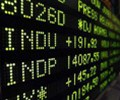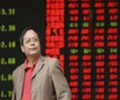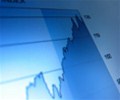
Day trader Lu Delong’s optimism about China’s stock rally quickly evaporated in the first week of the year when, just three months after bracing for a surge fueled by Beijing’s stimulus promises, he was forced to dump shares and count his losses.
Many retail investors like Lu sold shares in early January, triggering the weakest start to a new year in nearly a decade in China’s $11 trillion stock market.
“This barbaric sell-off is beyond my comprehension. “I haven’t seen Trump announce anything new on China,” Lu said, referring to the uncertainty surrounding US trade policy under President-elect Donald Trump.
“The only reasonable explanation is that the market is pressuring the government to take a tougher policy,” said Lu, who turned bullish on Chinese stocks in late September but now plans to hold only cash ahead of the Lunar New Year holiday. starting at the end of January.
Disillusioned with economic policy and concerns around US trade tariffs, retail investors are selling off, threatening to plunge Chinese stocks back into a years-long downward trend.
Chinese shares saw their first annual gain in 2024 following an unprecedented three-year decline triggered by the COVID-19 pandemic, troubles in the property sector and weak consumer confidence.
Retail money accounts for about 70% of Chinese stock trading, therefore there is a risk that the sell-off could trigger an unwinding of leverage and losses that could hamper Beijing’s efforts to stabilize capital markets.
The government needs a sustainable bull market to fund an economic revival, but a boom and bust would “destroy wealth, hurt consumption and hurt China’s economy”, said Dong Baozhen, chairman of asset manager Lingtong Shengtai based in Beijing.
A sell-off would mean another vote of no confidence from investors who have unleashed pessimism about China’s economy in the yuan and bond markets, prompting the government to take action to stem the slide in the currency and bond yields.
‘COLD WATER’
The market appeared to be on the cusp of recovery at the end of September when Beijing announced an interest rate cut and an intention to hold the market. Desperate investors plunged into stocks and pushed the benchmark index up by 40% over two weeks.
The broad market then weakened as investors waited for more concrete policies, but retail trading remained active, as evidenced by high turnover, soaring prices of small-cap stocks, and a rapid increase in leveraged bets.
Signs of disappointment emerged in early 2025, with shares in Shanghai and Shenzhen down about 6% so far, making them the world’s worst-performing major markets.
“Policymakers are starting fires on dry wood, but the fires can be put out with cold water,” said retail investor Zhang Jianan, referring to the half-hearted implementation of policies.
The People’s Bank of China (PBOC) initiated a 500 billion yuan ($68 billion) swap facility to fund share purchases by institutional investors, but by the end of 2024 only 50 billion yuan under the scheme had been utilized, indicating institutional skepticism.
“When you see financial institutions plowing money into Treasury bonds and high-dividend stocks, you know that the institutions with deep pockets are pessimistic about the economy. Market behavior doesn’t lie,” Zhang said.
Foreign investors have also withdrawn from the market.
Global hedge funds increased exposure to China during last year’s stimulus-driven rally but quickly reversed it, while global long-only funds “remained largely on the sidelines,” Goldman Sachs wrote.
WAITING GAME
The biggest mismatch could be “markets are expecting a ‘big bang’ while Beijing is in ‘wait and see’ mode, pending growth conditions and Trump policies”, said Yan Wang, head of emerging markets and China strategist at Alpine Macro (BCBA) . :).
“For now we still view China as a tactical trade.”
Hao Hong, partner and chief economist at GROW Investment, said Trump’s threat to impose tariffs of 60% on Chinese goods was a source of great uncertainty.
“Markets are very volatile right now, and Trump is very unpredictable, so it’s not a good time to rush,” said Hong, who doesn’t own Chinese stocks in his multi-asset fund.
“Now we just have to wait, wait for policy changes. If there is no opportunity, don’t act. Be patient.”
With half a trillion yuan worth of borrowed funds pouring into the market since late September, an irregular retail pullback could trigger margin calls and the ensuing stampede could drop the Shanghai index below the key 3,000-point level this month, Shanghai-based investors said. Mao Jian.
Shanghai’s benchmark index ended Monday at 3,160 points, 5% above a level seen by many investors as psychologically important and by state funds as worth holding on to.
To prevent another crisis, China must aggressively expand the central bank’s balance sheet and establish a state market stabilization fund, because “when things are tough, you need a much bigger fire to burn,” said retail investor Zhang.
Source: Reuters




